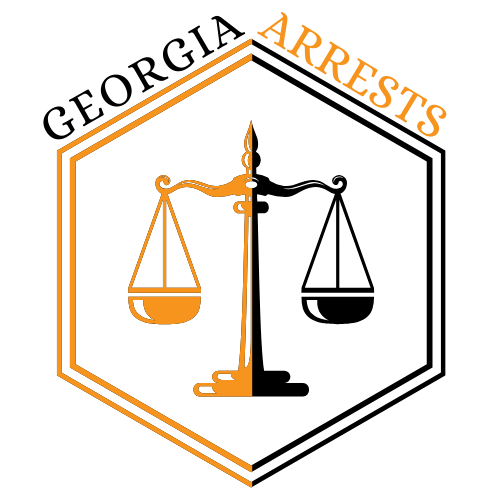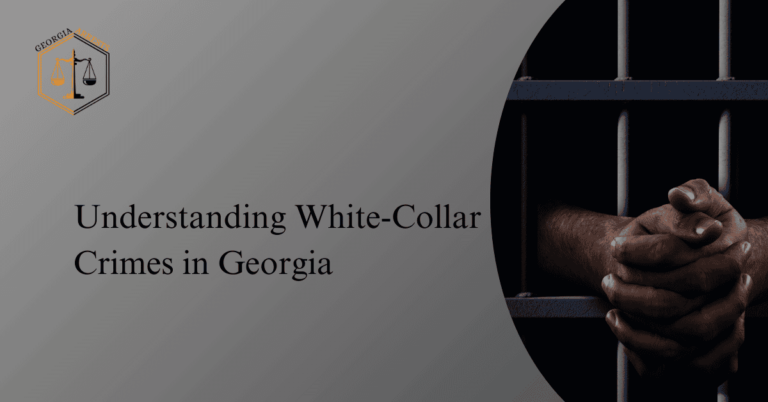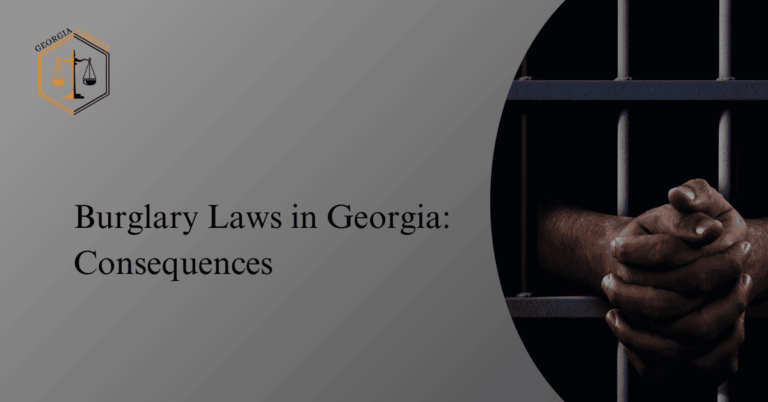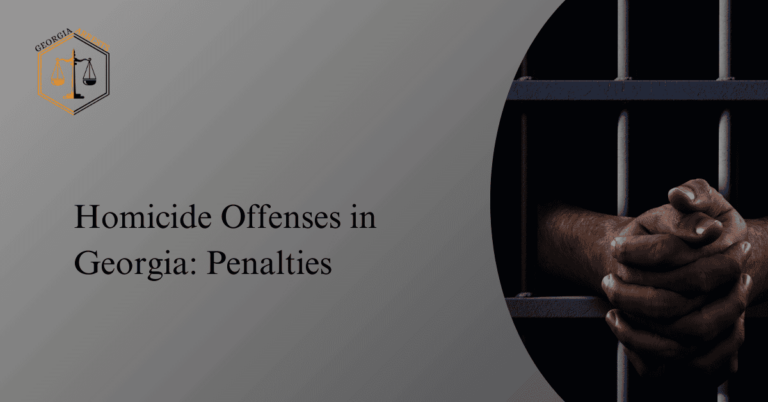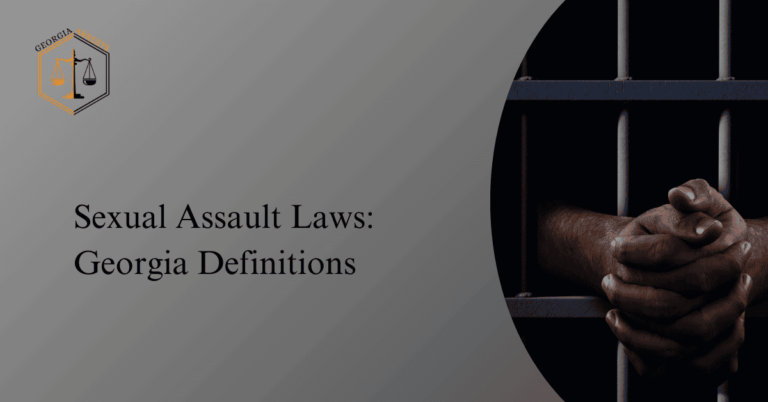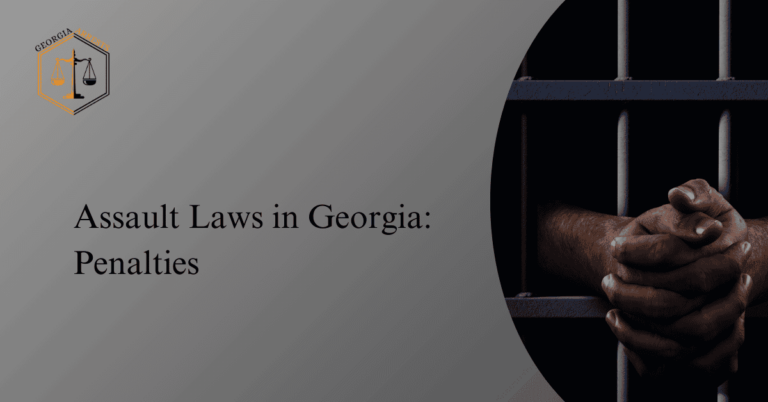Drug Offenses in Georgia: Overview
Drug offenses in Georgia can have serious consequences for individuals involved in such activities. Understanding the laws and penalties related to drug offenses in the state is crucial to navigate the legal system effectively. Whether it’s possession, distribution, or trafficking, being aware of the specifics of drug offenses in Georgia is essential to protect one’s rights and make informed decisions.
From marijuana to cocaine, drug offenses encompass a wide range of substances and activities. The legal landscape surrounding drug offenses in Georgia is complex, with varying penalties based on the type and amount of drugs involved. By familiarizing oneself with the laws and regulations governing drug offenses in Georgia, individuals can better comprehend the potential repercussions of their actions and seek appropriate legal counsel when needed.
Drug Offenses in Georgia: Overview
Drug offenses in Georgia are a serious matter with severe legal consequences. Understanding the laws and penalties surrounding drug crimes in Georgia is crucial for individuals to navigate the legal system effectively.
Understanding Drug Offenses in Georgia
Drug offenses in Georgia encompass a wide range of illegal activities related to controlled substances. These offenses can include drug possession, trafficking, manufacturing, and distribution.
Types of Drug Offenses in Georgia
Common types of drug offenses in Georgia include possession of illegal substances, possession with intent to distribute, drug trafficking across state lines, and manufacturing controlled substances.
Penalties for Drug Offenses in Georgia
The penalties for drug offenses in Georgia vary depending on the type and quantity of drugs involved, as well as the individual’s criminal history. Penalties can range from fines and probation to lengthy prison sentences.
Legal Consequences of Drug Offenses
Individuals convicted of drug offenses in Georgia may face a range of legal consequences, including loss of driving privileges, mandatory drug treatment programs, and a criminal record that can impact future employment opportunities.
Drug Offenses: Possession vs. Trafficking
Understanding the differences between drug possession and trafficking is essential for individuals facing drug charges in Georgia. Possession typically refers to having illegal substances for personal use, while trafficking involves selling, distributing, or transporting drugs.
Differences Between Possession and Trafficking
Possession of drugs in Georgia is considered a less serious offense compared to trafficking, which carries harsher penalties. Trafficking charges often involve larger quantities of drugs and can result in mandatory minimum sentences.
Penalties for Possession vs. Trafficking
Individuals convicted of drug possession in Georgia may face fines, probation, and drug education programs. In contrast, trafficking convictions can lead to lengthy prison sentences, substantial fines, and other legal consequences.
Impact of Drug Offenses on Individuals
Drug offenses can have a lasting impact on individuals in Georgia, including damage to their reputation, financial strain from legal fees, and difficulties securing employment or housing. Seeking legal counsel and understanding one’s rights is crucial when facing drug charges.
Repercussions of Drug Offenses in Georgia
Individuals convicted of drug offenses in Georgia may experience stigma, social isolation, and challenges reintegrating into society after serving their sentence. Seeking support from family, friends, and community resources is essential for individuals to rebuild their lives after a drug offense.
Frequently Asked Questions
Our Frequently Asked Questions section aims to provide detailed information and answers to common queries regarding Drug Offenses in Georgia.
What are the different types of drug offenses in Georgia?
Drug offenses in Georgia can range from simple possession to trafficking, manufacturing, and distribution of controlled substances. Each offense carries different penalties and consequences, depending on the amount and type of drug involved.
What are the penalties for drug offenses in Georgia?
In Georgia, penalties for drug offenses vary based on the severity of the crime, the type and amount of drug involved, and the offender’s criminal history. Penalties can include fines, probation, community service, and imprisonment.
How does Georgia classify controlled substances?
Georgia classifies controlled substances into different schedules based on their potential for abuse and medical use. Schedule I drugs have a high potential for abuse and no accepted medical use, while Schedule V drugs have a lower potential for abuse and accepted medical use.
What are the defenses available for drug offenses in Georgia?
Defenses for drug offenses in Georgia can include lack of evidence, illegal search and seizure, entrapment, and violations of the defendant’s constitutional rights. An experienced criminal defense attorney can help navigate the legal process and build a strong defense strategy.
How can a drug offense conviction impact my future?
A drug offense conviction in Georgia can have long-lasting consequences, including a criminal record, difficulty finding employment, housing, or educational opportunities, loss of professional licenses, and limitations on certain civil rights. It is crucial to seek legal counsel to minimize the impact of a conviction.
What should I do if I am facing drug offense charges in Georgia?
If you are facing drug offense charges in Georgia, it is essential to seek immediate legal representation from a qualified criminal defense attorney. Your attorney can review your case, explain your rights, and help you navigate the legal process to achieve the best possible outcome.
